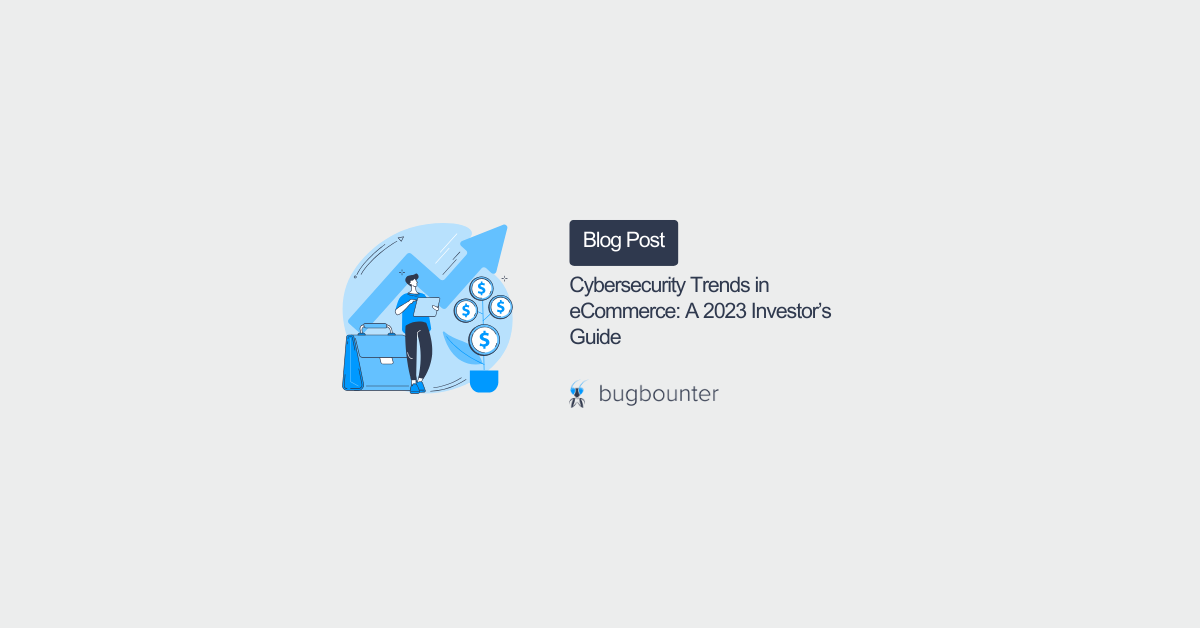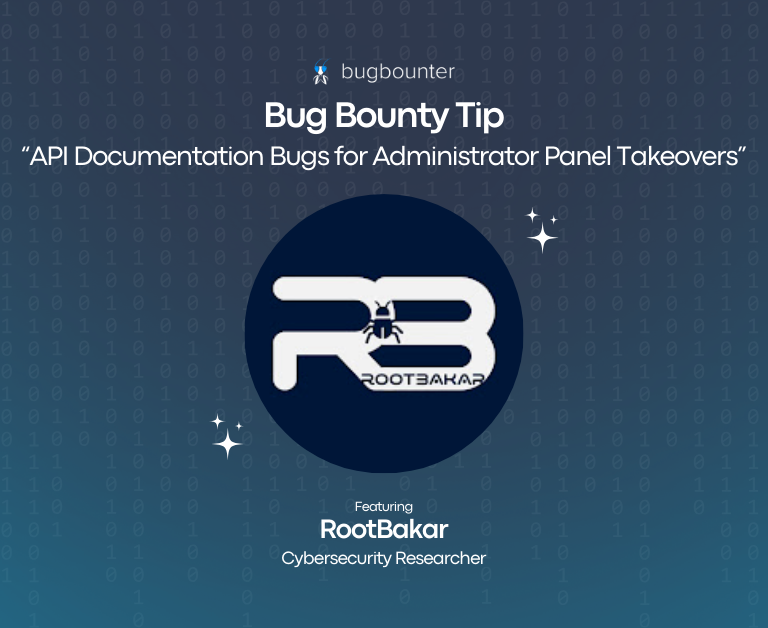Cybersecurity Trends in eCommerce: A 2023 Investor’s Guide
As the eCommerce industry continues its meteoric rise in 2023, investors face both exciting opportunities and pressing challenges. Cybersecurity, in particular, takes center stage as a critical factor in safeguarding investments. In this comprehensive blog post, we explore key cybersecurity trends, backed by numerical data, and delve into the positive impact of bug bounty platforms on securing investments.
Don’t feel like reading? Talk to a real person!
1. eCommerce Cybersecurity Trends: A Comprehensive Overview
1.1 DoS and DDoS Attacks
Statistics:
- DoS and DDoS attacks threaten to disrupt online stores, with a significant increase in incidents.
- DDoS attacks grew by 109% between March 2022 and March 2023.
Security Measures:
- Implement DDoS protection services.
- Utilize firewalls and network security measures.
- Regularly monitor and analyze website traffic for unusual patterns.
1.2 Brute Force Attacks
Statistics:
- Brute force attacks remain a persistent threat, especially with predictable passwords.
Security Measures:
- Encourage strong, unique passwords.
- Implement account lockout policies after failed login attempts.
- Monitor and block suspicious login activities.
1.3 SQL Injections
Statistics:
- eCommerce stores face potential financial losses due to fraudulent SQL commands.
- 87% of open-source codebases scanned had security risks in a 2023 report.
Security Measures:
- Conduct regular SQL checks to identify and prevent injection vulnerabilities.
- Validate and sanitize user input to prevent malicious SQL commands.
- Keep software and systems up-to-date to patch known vulnerabilities.
1.4 Security Best Practices
Regular SQL Checks:
- Perform daily SQL checks to safeguard against SQL injection attacks.
- Use available tools and software to automate the monitoring of the eCommerce platform.
Limit Customer Information Collection:
- Avoid collecting unnecessary customer information.
- Utilize encrypted checkout processes for secure online payments.
Properly Configure Perimeter Defenses:
- Ensure a robust firewall is correctly configured.
- Choose hosting providers that offer essential security services such as DDoS protection, data loss prevention, and antivirus/anti-malware.
Stay Informed and Updated:
- Keep abreast of emerging cybersecurity threats.
- Regularly update software, plugins, and security configurations.
1.5 Bug Bounty Platforms: Enhancing Security
Positive Impacts:
- Leverage bug bounty platforms to identify and resolve vulnerabilities proactively.
- Engage ethical hackers to find and fix security issues before malicious actors exploit them.
1.6 Recap:
As the eCommerce market continues to grow, understanding and implementing these security measures, coupled with bug bounty platforms, are essential for ensuring the safety of the business and maintaining customer trust and loyalty. Business owners should prioritize proactive cybersecurity strategies to protect against evolving threats.
2. Extended Cybersecurity Trends in 2023
2.1 The Rise in Remote Work
Statistics:
- 11.1% of companies offer a fully remote work environment.
- 27.5% offer a hybrid work environment.
Jobs:
Network administrator, System administrator, Information security analyst, Security architect.
2.2 AI and Machine Learning in Cyber Attacks
Statistics:
- 47% increase in phishing attempts in 2022 using AI.
Jobs:
Incident responder, Security engineer, Cybersecurity manager.
2.3 Attacks on Cloud, Mobile, and IoT
Statistics:
- By 2025, demand for smart devices will reach 1.8 billion products.
Jobs:
Security systems administrator, Security engineer, Security architect.
2.4 Open-Source Code Risks
Statistics:
- 87% of open-source codebases scanned had security risks in a 2023 report.
Jobs:
Penetration tester, IT auditor.
2.5 Innovating Multi-Factor Authentication (MFA)
Information:
SMS-based MFA is vulnerable, and a shift to MFA apps is anticipated.
Jobs:
Security systems administrator, Security engineer.
2.6 Growing DDoS Attacks
Statistics:
- DDoS attacks grew by 109% between March 2022 and March 2023.
Jobs:
Incident responder, IT auditor, Security engineer, Cybersecurity manager.
2.7 Protecting Trustworthy Information
Information:
Trust will shift with the rise in AI, emphasizing the need for protecting legitimate information.
Jobs:
Cryptography engineer, Cybersecurity consultant.
3. Conclusion: A Secure Path for Your Investments
The evolving challenges in the retail, eCommerce, and logistics sectors underscore the critical importance of cybersecurity measures. Investors looking to capitalize on the burgeoning eCommerce market should not only understand the risks but also appreciate the proactive cybersecurity strategies employed by businesses, complemented by bug bounty platforms. Armed with this knowledge and a commitment to security, investors can make informed decisions, safeguard their investments, and contribute to the growth of a secure and resilient eCommerce landscape.





